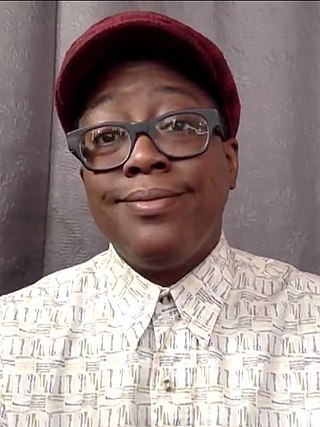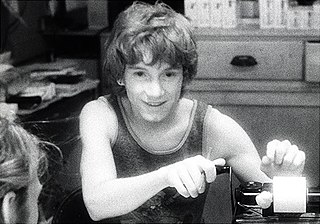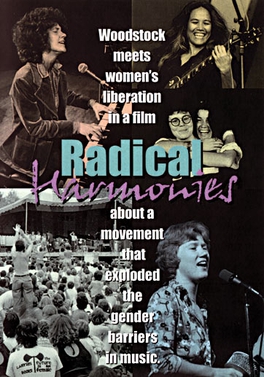
A gay village, also known as a gayborhood, is a geographical area with generally recognized boundaries that is inhabited or frequented by many lesbian, gay, bisexual, transgender, and queer (LGBTQ) people. Gay villages often contain a number of gay-oriented establishments, such as gay bars and pubs, nightclubs, bathhouses, restaurants, boutiques, and bookstores.

Leather subculture denotes practices and styles of dress organized around sexual activities that involve leather garments, such as leather jackets, vests, boots, chaps, harnesses, or other items. Wearing leather garments is one way that participants in this culture self-consciously distinguish themselves from mainstream sexual cultures. Many participants associate leather culture with BDSM practices and its many subcultures. For some, black leather clothing is an erotic fashion that expresses heightened masculinity or the appropriation of sexual power; love of motorcycles, motorcycle clubs and independence; and/or engagement in sexual kink or leather fetishism.

Dorothy Louise Taliaferro "Del" Martin and Phyllis Ann Lyon were an American lesbian couple based in San Francisco who were known as feminist and gay-rights activists.

A gay bar is a drinking establishment that caters to an exclusively or predominantly lesbian, gay, bisexual, transgender or queer (LGBTQ+) clientele; the term gay is used as a broadly inclusive concept for LGBTQ+ communities.

LGBT tourism is a form of tourism marketed to gay, lesbian, bisexual, and transgender (LGBTQ) people. People might be open about their sexual orientation and gender identity at times, but less so in areas known for violence against LGBT people.

Barbara Jean Hammer was an American feminist film director, producer, writer, and cinematographer. She is known for being one of the pioneers of the lesbian film genre, and her career spanned over 50 years. Hammer is known for having created experimental films dealing with women's issues such as gender roles, lesbian relationships, coping with aging, and family life. She resided in New York City and Kerhonkson, New York, and taught each summer at the European Graduate School.

Jenni Olson is a writer, archivist, historian, consultant, and non-fiction filmmaker based in Berkeley, California. She co-founded the pioneering LGBT website PlanetOut.com. Her two feature-length essay films — The Joy of Life (2005) and The Royal Road (2015) — premiered at the Sundance Film Festival. Her work as an experimental filmmaker and her expansive personal collection of LGBTQ film prints and memorabilia were acquired in April 2020 by the Harvard Film Archive, and her reflection on the last 30 years of LGBT film history was published as a chapter in The Oxford Handbook of Queer Cinema from Oxford University Press in 2021. In 2020, she was named to the Out Magazine Out 100 list. In 2021, she was recognized with the prestigious Special TEDDY Award at the Berlin Film Festival. She also campaigned to have a barrier erected on the Golden Gate Bridge to prevent suicides.
Nancy Kates is an independent filmmaker based in the San Francisco Bay Area. She directed Regarding Susan Sontag, a feature documentary about the late essayist, novelist, director and activist. Through archival footage, interviews, still photographs and images from popular culture, the film reflects the boldness of Sontag’s work and the cultural importance of her thought, and received funding from the National Endowment for the Humanities, the National Endowment for the Arts, the Foundation for Jewish Culture and the Sundance Documentary Film Program.

Cheryl Dunye is a Liberian-American film director, producer, screenwriter, editor and actress. Dunye's work often concerns themes of race, sexuality, and gender, particularly issues relating to black lesbians. She is known as the first out black lesbian to ever direct a feature film with her 1996 film The Watermelon Woman. She runs the production company Jingletown Films based in Oakland, California.

The Frameline Film Festival began as a storefront event in 1976. The first film festival, named the Gay Film Festival of Super-8 Films, was held in 1977. The festival is organized by Frameline, a nonprofit media arts organization whose mission statement is "to change the world through the power of queer cinema". It is the oldest LGBTQ+ film festival in the world.

Allan Bérubé was a gay American historian, activist, independent scholar, self-described "community-based" researcher and college drop-out, and award-winning author, best known for his research and writing about homosexual members of the American Armed Forces during World War II. He also wrote essays about the intersection of class and race in gay culture, and about growing up in a poor, working-class family, his French-Canadian roots, and about his experience of anti-AIDS activism.

Nitrate Kisses is a 1992 experimental documentary film directed by Barbara Hammer. According to Hammer, it is an exploration of the repression and marginalization of LGBT people since the First World War. To celebrate the 30th anniversary of the Teddy Awards, the film was selected to be shown at the 66th Berlin International Film Festival in February 2016.

Daniel Nicoletta is an Italian-American photographer, photojournalist and gay rights activist.

The lesbian, gay, bisexual and transgender (LGBTQ) community in San Francisco is one of the largest and most prominent LGBT communities in the United States, and is one of the most important in the history of American LGBT rights and activism alongside New York City. The city itself has been described as "the original 'gay-friendly city'". LGBT culture is also active within companies that are based in Silicon Valley, which is located within the southern San Francisco Bay Area.

The Lexington Club, often referred to as The Lex, was a dive bar, primarily catered towards queer women, in the Mission District in the American city of San Francisco, California. It was recognized as one of the central landmarks for LGBTQ culture, especially for lesbians and queer women, in San Francisco. The club was founded in 1997 and closed at the end of April 2015.
Rikki Streicher (1922–1994) was an American activist and community leader in San Francisco's LGBTQ movement. In the 1960s, she had an active leadership role in the Society for Individual Rights, an organization that promoted equal rights for gays and lesbians. In 1966, she opened and ran Maud's, a year prior to the San Francisco’s Summer of Love; it stayed open for 23 years, at that time the longest continuously running lesbian-owned lesbian bar in the country. She opened a second bar, Amelia’s, in 1978 in the city’s Mission district, with both venues serving as makeshift community centers for lesbians who had very few accepting socializing options. In the early 1980s, she was a co-founder of the international Gay Olympics, later called Gay Games, she helped to create the Federation of Gay Games and served on the board of directors. In 1994, she received the Dr. Tom Waddell Award for her contribution to Gay Athletics.
Maud's was a lesbian bar at 937 Cole Street in San Francisco's Cole Valley neighborhood which opened in 1966 and closed in 1989. At the time of its closing, which was captured in the film, Last Call at Maud's, it was claimed to be the oldest lesbian bar in the United States. Its history, documented in the film and other media, spanned almost a quarter-century of LGBTQ events.

A lesbian bar is a drinking establishment that caters exclusively or predominantly to lesbian women. While often conflated, the lesbian bar has a history distinct from that of the gay bar.

Radical Harmonies is a 2002 American independent documentary film directed and executive produced by Dee Mosbacher that presents a history of women's music, which has been defined as music by women, for women, and about women. The film was screened primarily at LGBTQ film festivals in 2003 and 2004.














